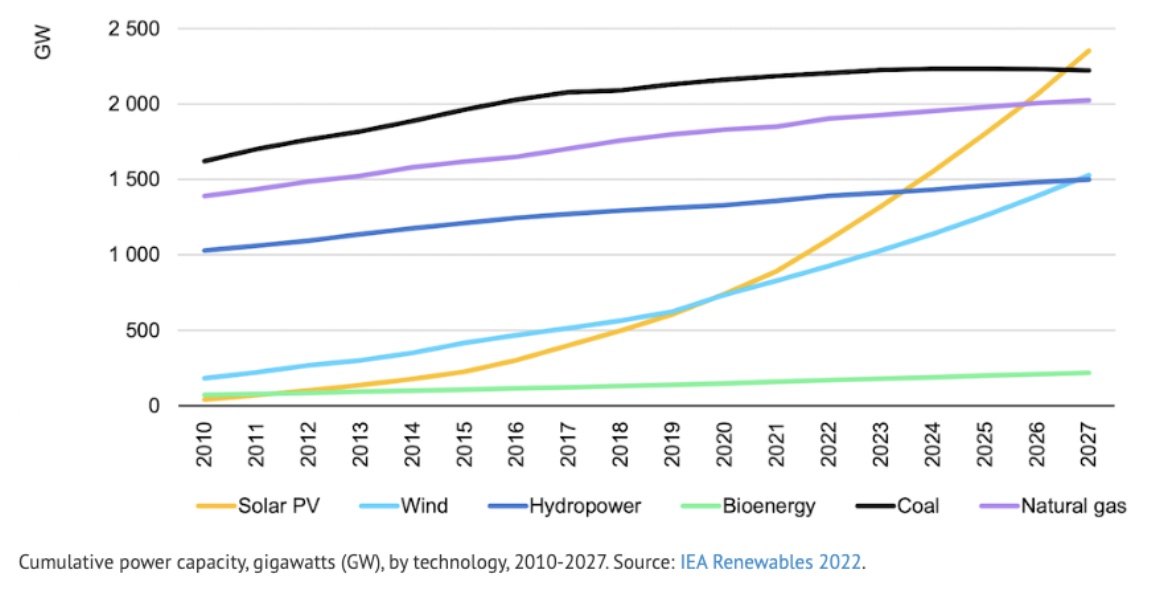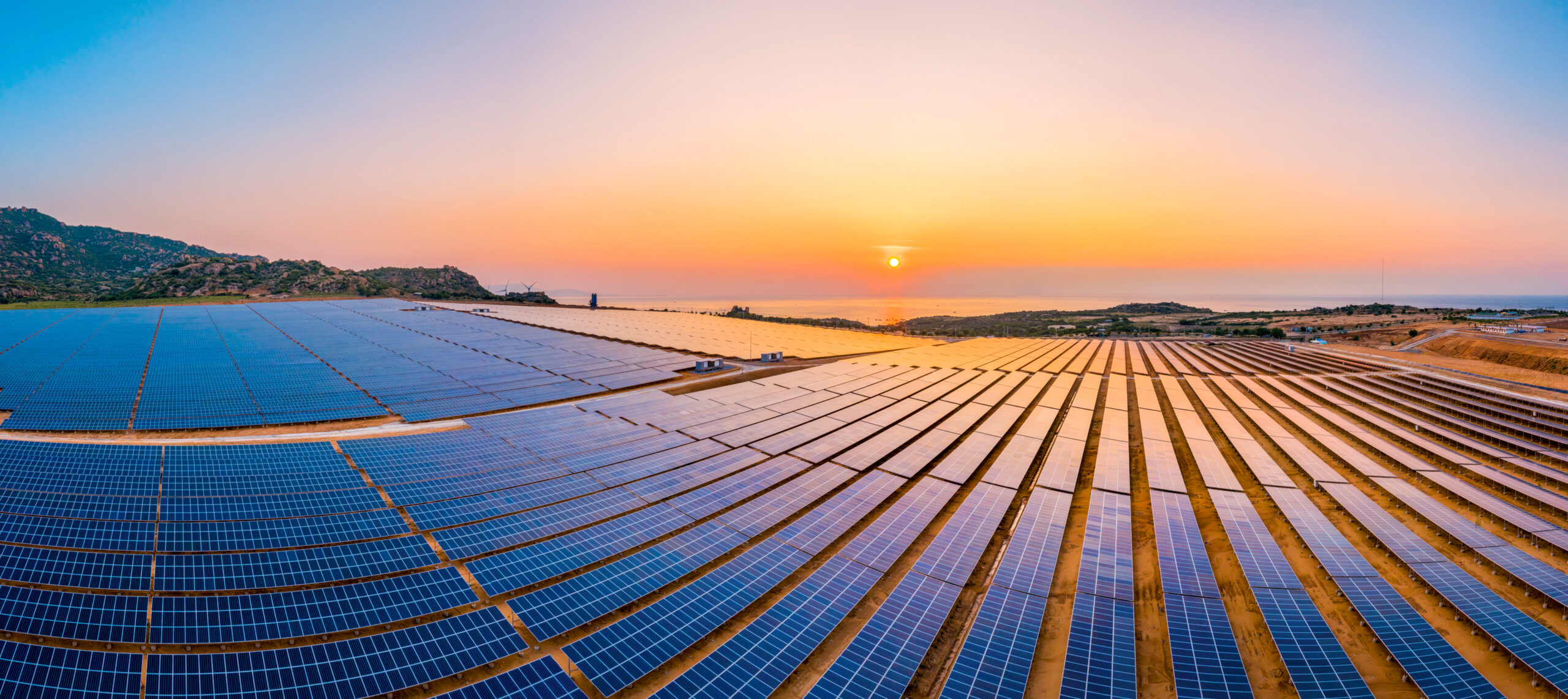It is inherently difficult to predict disruptive technologies. Past trends are not a good indication of technology that are poised for exponential growth. Many energy outlooks look conservative in hindsight.
The International Energy Agency (IEA) is no stranger to this dance. This week, the international think tank raised its global forecast for renewable growth in what it calls the “largest ever upward revision.”
The new report, Renewables 2022, takes into account the geopolitical events and new policies from the last year, predicting an 85 percent acceleration in deployments over the next five years — a 76 percent increase since 2020, according to analysis from Carbon Brief.

Of course, all outlooks should be taken with a grain of salt (hence the large swings). Yet as we reflect on the future of renewables, the report captures a snapshot of this moment that is worth noticing.
Renewable energy is now a national security issue
Russia’s invasion of Ukraine has exacerbated a global energy crisis, felt most acutely in Europe, resulting in a renewed push for energy independence.
The drive for the European Union to wean off Russian gas is predicted to double the renewable energy electricity expansion over the next year, according to the IEA. Policies — both from the European Commission and the countries within — are set to supercharge the transition.
“Fossil fuel supply disruptions have underlined the energy security benefits of domestically generated renewable electricity, leading many countries to strengthen policies supporting renewables,” the report writes.
Cost volatility is also inspiring businesses in the bloc to turn to renewables for better cost certainty. A recent report from Edie surveying (mainly U.K.) companies found three quarters of businesses are at least moderately affected by energy prices, inspiring companies (that can afford it) to speed up efforts relating to efficiency and clean energy procurement. While rising cost or power purchase agreements has cooled corporate procurements in Europe from last year’s all-time high, demand remains high.
Renewables will overtake fossil fuels globally
The IEA now sees a world where fossil fuels are not the dominant source of electricity. Solar PV in particular is poised for an impressive rise over the next five years, with the IEA predicting it will overtake coal and gas to top the list in installed capacity.

The predicted rise in solar and wind power is impressive, but the report notes that dispatchable renewable resources — such as hydropower, bioenergy, geothermal and concentrated solar — remain limited. That must change in order to integrate wind and solar into electricity systems globally.
All in all, the share of the power mix from renewables is expected to reach 38 percent by 2027. That alone isn’t enough to meet the EIA’s net zero scenarios, which requires renewables to produce 61 percent of electricity by 2030.
What’s next?
These updated projections for renewable energy likely will not be the last. Renewables have been tracking with a disruption framework that indicates these external factors will perpetuate a virtuous cycle, as the cost of technologies decline and the near-zero marginal cost of renewables attract more attention.
Of course, geopolitical and economic forces are sure to create speedbumps along the way, as we’ve seen with the collision of crises these last two years. Yet the expanding value proposition of clean energy is sure to spur forward the business model and technology innovations (supercharged by policy support) to continue superlinear growth.
[Want more great analysis of the clean energy transition? Sign up for the Energy Weekly newsletter.]

